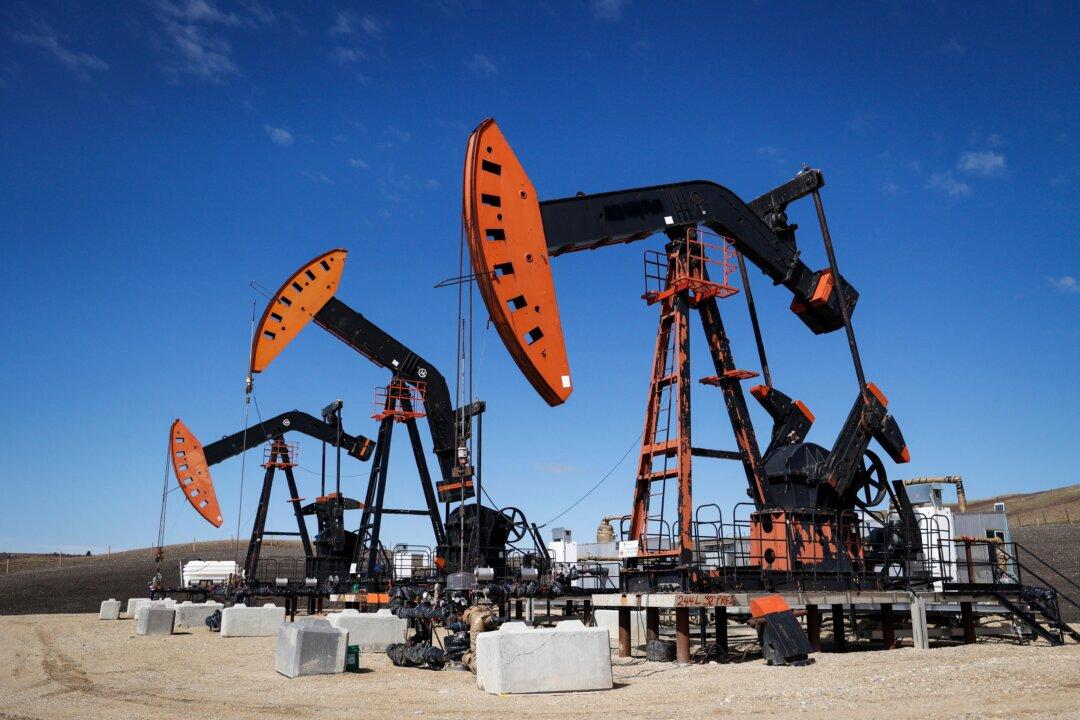The first half of 2023 was rough on Canadian oil and gas stocks after a stellar 2022, but bullish sentiment remains. Investors single out as obstacles an adverse policy environment and sentiment toward the industry, and point to the need for ongoing capital investment as the green energy transition stutters.
Eric Nuttall, a leading oil and gas investor, says it makes no sense that Canadian companies trade at a discount to their U.S. counterparts given the depth and quality of inventory advantages they have over the U.S. shale firms.
But he adds that it’s reasonable to keep in mind the impact of “current federal government policies.”
The partner and senior portfolio manager with Ninepoint Partners LP, speaking on a June 13 ARC Energy Research Institute podcast, said that uncertainty from governments with “windfall taxes”; environmental, social, and governance (ESG) factors; and divestments are clearly preventing big energy companies from investing sufficiently in their businesses.
“From a societal perspective, it’s a little bit unsettling that Western oil and gas companies in the free market are going to keep their production flat at best, which tells me that the state-owned oil companies and the Russians, and others are just going to take market share,” he said.
At a June 3 hearing in Washington, D.C., to discuss the consequences of ESG, Mandy Gunasekara, director of the Center for Energy and Conservation at the Independent Women’s Forum, said the policies pushed by ESG end up causing more harm than good, as they have led to divestment from oil and gas companies.
“Reducing access to and development of the energy sources we need while also forcing a greater use of inferior energy technologies has created an energy grid ill-equipped to deal with predictable weather patterns,” she said.
Rafi G. Tahmazian, senior portfolio manager at Canoe Financial, said in a May 29 interview with BNN Bloomberg that more capital investment is needed in the energy sector in order to bring down inflation, and that greater incentives are needed to spur more production.
“You’re watching governments—they’re just continuing to be more and more short-sighted instead of capitulating and realizing that we need to do the one thing and the one thing only that will alleviate this problem and start to stem the flow of inflation,” he said.
Green Energy Doubts
Nuttall said that the demand for oil will be stronger for longer and that the green energy transition will take longer than what the average person believes.
Peter Tertzakian, managing director of ARC Financial Corp., said during the podcast that more policy certainty is vital.
“If companies are going to be able to achieve decarbonization goals and targets, they have to be able to access capital markets, including things like debt,” he said.
“And if their valuations are hampered, it’s much more difficult to do to get investor positive sentiment around such investments.”
Canadian oil and gas companies are dealing with ever-rising carbon taxes, emissions caps, clean fuel standards, progressive banning of gasoline-powered vehicles, and ESG compliance.
But in an era when oil companies are trying to go green, energy giants BP and Shell are turning their focus back to oil and gas due to concerns about poor returns from renewable energy and the ongoing profit potential from fossil fuels. Exxon Mobil and Chevron plan to increase fossil fuel output.





